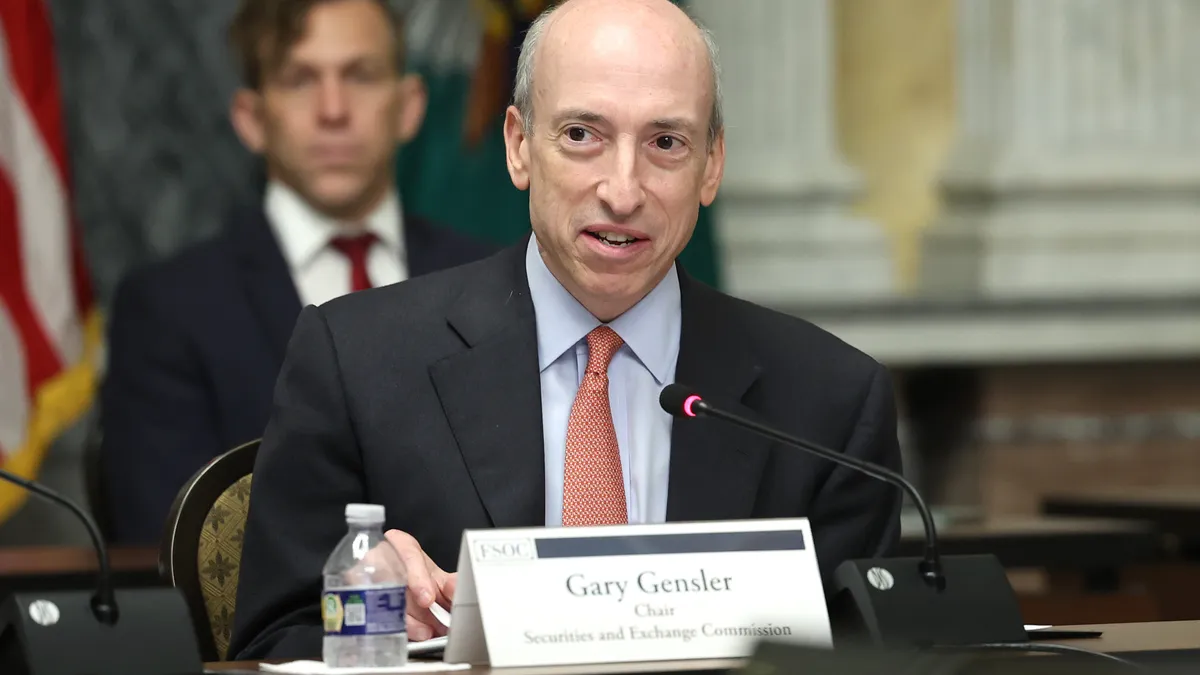Dive Brief:
- A pair of Democratic senators told the Securities and Exchange Commission Thursday they were “disappointed” to see the agency delay the release of amendments aimed to improve the Human Capital Management Disclosure rule and urged the agency to accelerate its timeline.
- The letter, penned by Sens. Sherrod Brown and Mark Warner, came shortly after the SEC released its fall regulatory agenda, which provided a look at the agency’s priorities for the upcoming months. The human capital disclosure rule is slated for an April 2024 release.
- Brown and Warner called on the agency to ensure the updated rule requires companies to disclose temporary and contract workers, employee turnover data, employee compensation and benefits information, workforce health and safety information, and demographics data.
Dive Insight:
The senators said disclosure of human capital data is “vital to help investors understand how companies treat their most critical asset — the workers,” and the requirements of the current rule are “too limited and vague” to produce informative, material disclosure on companies’ workforce investment. Brown and Warner, who are both members of the Brown-chaired Senate Committee on Banking, Housing, and Urban Affairs, urged the regulatory agency to address these shortcomings and issue the updated rule without further delay.
“American workers and investors both deserve complete and transparent disclosure on these issues,” the senators wrote.
The letter also said the SEC has sufficient data to assess how companies responded to the current human capital disclosure rule, last updated in 2020, as most public companies have filed annual reports under this rule for the past three years. Though the 2020 update elaborated on what the agency described as “business,” it did not outline or prescribe what exact information companies needed to disclose and did not explicitly define “human capital.”
The senators pointed to a 2022 survey of company annual reports by law firm Gibson, Dunn & Crutcher and said “it is clear that those rules are not working.” The survey revealed only 17% of companies included a quantitative breakdown of the number of full-time versus part-time employees it had employed; 23% of companies included data on employee turnover rates; and only 12% of companies provided quantitative data on the pay gap between employees across different demographic groups.
Earlier this year, the SEC’s Investor Advisory Committee unanimously voted to update the rule, calling for companies to report more robust data regarding their workforce and human capital management and suggested a concrete definition of the term “human capital.” Proposed criteria for “human capital” included metrics on compensation, employment status, turnover data and demographics.
The committee also recommended the regulatory agency ask companies to provide more detailed information on how the firm’s labor practices, staffing and compensation incentives fit within its broader operational strategy.
“Honoring the dignity of employees’ work is not just a moral imperative, it also has material implications for companies’ bottom lines,” Brown and Warner added.












